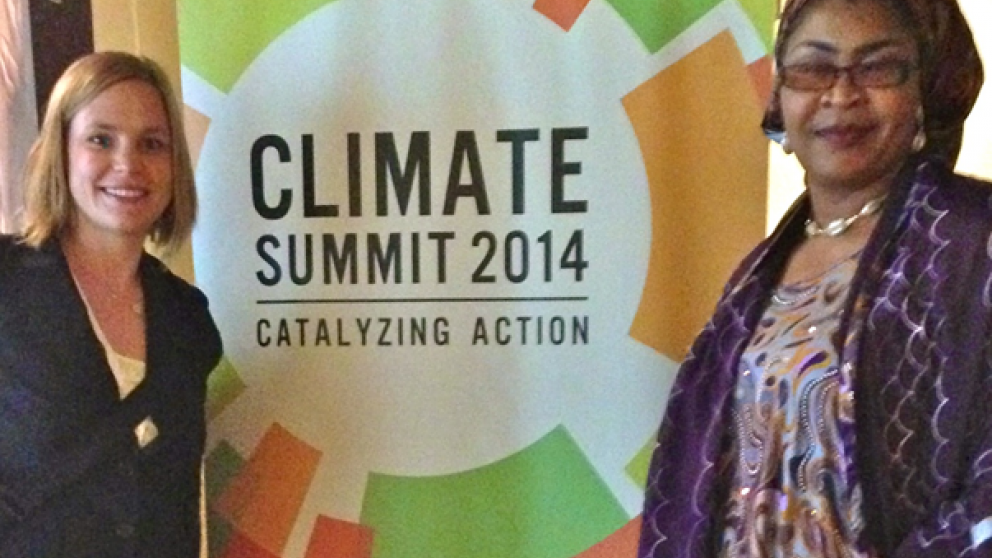Headline:
IASS Represents Non-State Partners on Steering Committee of Climate and Clean Air Coalition

IASS researcher Dr Birgit Lode, an expert in international law, has been elected for a two-year term to the Steering Committee of the Climate and Clean Air Coalition to Reduce Short-Lived Climate Pollutants (CCAC). The CCAC is an international effort to maximise the health, agricultural and climate benefits of swift action on short-lived climate-forcing pollutants (SLCPs). The Coalition is composed of almost 100 partners, of which half are governments and the other half are intergovernmental and non-governmental organisations. In his response to this news, IASS Executive Director Professor Klaus Töpfer stated: “In the past two years the CCAC has shown that it really is a ‘coalition of the working’. We are therefore delighted to be able to represent non-state partners in the CCAC Steering Committee.” In her new role, Birgit Lode will concentrate in particular on advancing SLCP mitigation and emission reduction strategies.
The new composition of the CCAC Steering Committee was approved by the CCAC High Level Assembly at its meeting on 22 September in New York. This took place on the margins of the UN Climate Summit 2014, where the IASS was represented by Klaus Töpfer. The Steering Committee now comprises state representatives from Côte d’Ivoire, the Netherlands, Canada, and the United States, with one slot yet to be filled by a member from an Asian country. The Institute for Governance and Sustainable Development (IGSD) and the IASS were elected as representatives of non-governmental organisations. The World Bank and one other institution, which has yet to be confirmed, will represent intergovernmental organisations.
As a representative of non-state partners on the CCAC Steering Committee, the IASS will focus on strengthening the scientific basis of the CCAC’s initiatives. IASS researchers cover the full range of pollutants highlighted by the CCAC, with a special focus on tropospheric ozone and black carbon. Moreover, the IASS is a Lead Partner in the CCAC Brick Kiln Initiative.
The CCAC was launched in February 2012 by the governments of Bangladesh, Canada, Ghana, Mexico, Sweden and the United States, as well as the United Nations Environment Programme (UNEP). Its constitutive document, the Coalition Framework, does not create any legally binding obligations between CCAC partners. Each partner decides on its particular level of commitment. The CCAC tackles SLCPs, for example by raising awareness of this issue among the general public, and by taking fast and comprehensive action to reduce SLCP emissions. CCAC partners collaborate on 11 different initiatives. Most of these initiatives are intended to reduce emissions in specific sectors. Yet, there are also three cross-cutting initiatives that address the financing of SLCP mitigation, the promotion of National Action Plans on SLCPs, and the regional assessment of SLCPs.
Photo: (c) Birgit Lode
14.10.2014
